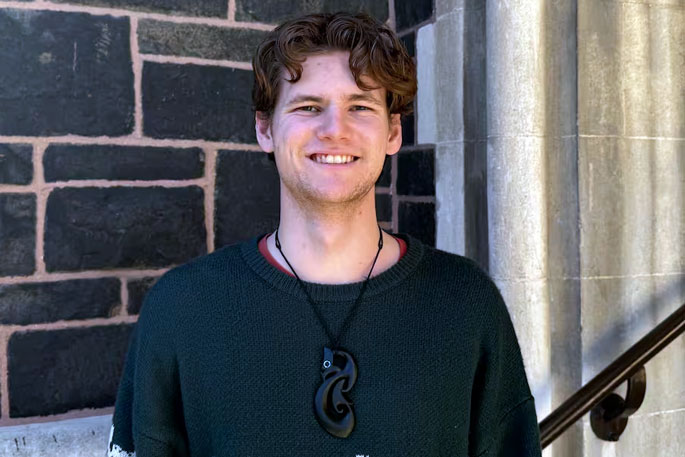More young Māori are entering the legal field and the trend is being welcomed by the New Zealand Law Society, which says the profession needs to better reflect the communities it serves.
Ngāi Te Rangi law student Oliver Gudsell’s journey began as a test run at Otago University in 2022.
Initially, he just wanted to see if it was a profession he would like to enter. That quickly manifested into a “this is where I’m meant to be” career decision.
The 21-year-old said in a media release that he welcomed the increased emphasis on tikanga Māori (Māori culture and values) which has become a compulsory law degree component.
Gudsell, who is from Tauranga Moana, said his Māori culture meant everything to him.
“I’ve grown up with tikanga coming into my life from my mum and my koro when I was ready to explore it. They showed me I’m Māori and let me grow into my Māoridom. My language and my culture was sparked by them but grown by me.”
Māori are still under-represented in the law profession and Gudsell hoped numbers would continue to increase.
This year he was elected as an executive on Te Rōpū Whai Pūtake, the Māori Law Student Association for Otago Law School.
“It has been really, really awesome. We have a core group of 20 to 30 students who meet every week.”
While Gudsell hopes to get some rungs on his chosen career ladder by starting at the bottom, indigenous law is on the cards for him at some point in the future.
Ngāi Te Rangi chief executive Paora Stanley said it was good to have “lawyers who understand the intricacies of our culture”.
“And Māori lawyers usually fit that category. There is a massive increase in the amount of not necessarily young people but Māori people going into different professions that they never went into before.”
Stanley said law was just one example of that.
A spokesperson from the New Zealand Law Society said the make-up of the legal profession was changing.
In its 2023 Snapshot of the Profession, 1238 (7.4%) of lawyers identified as Māori, compared to 16.5% of the population in Aotearoa New Zealand.
Information provided by 96% of registered lawyers about their ethnicity also revealed of early-career lawyers (0-7 years post qualified experience), 12.1% were Māori.
The society’s 2022 Snapshot of the Profession showed 1154 (7%) of lawyers identified as Māori compared to (6.9%) in 2021.
“We need the legal profession to reflect the communities that we serve. Better diversity across all levels and areas of the law are crucial to a more modern, inclusive, diverse and representative legal profession, which can meet the needs and preferences of clients across all communities and contribute to the development of the law,” the spokesperson said.
A Te Hunga Rōia Māori o Aotearoa spokesperson said New Zealand Māori Law Society membership was increasing.
Te Hunga had 550 practising lawyers and 165 non-practising lawyers and includes more than 300 tauira (students) from law schools around the motu.
“Numbers have consistently grown each year.”
Members of Te Hunga practised all types of law, although there was “a strong concentration where our whānau need us – in family, criminal, public law, environment and Māori land”.
“Our Hunga rōia, however, practice everywhere – in public and private sector, for corporate and non-profit, for government and for whānau, hapū and iwi – in Aotearoa and abroad – including the United Nations.”
Last year, Te Hunga celebrated its 35th anniversary. It was formally established in 1988 to provide an annual opportunity for Māori lawyers to discuss and debate issues relevant to Māori, and has remained the central focus of the organisation
Its first hui was held at Tunohopu Marae in Rotorua.



0 comments
Leave a Comment
You must be logged in to make a comment.